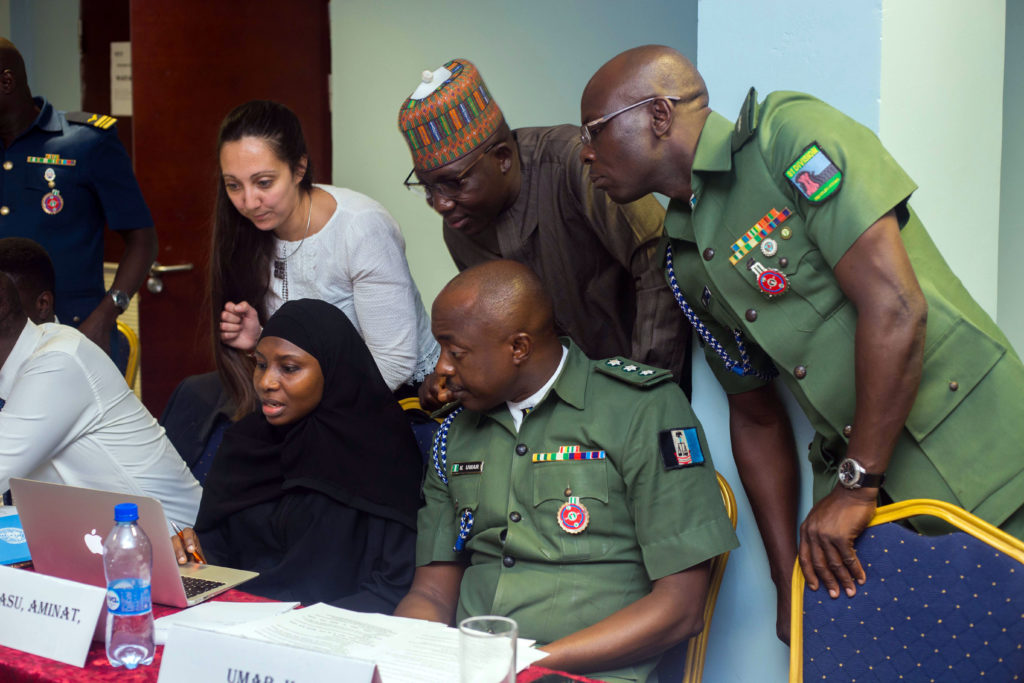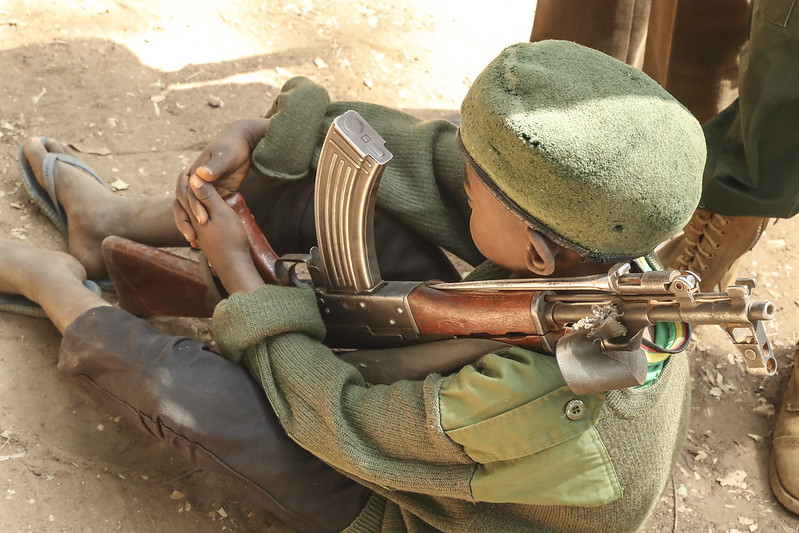Since the earliest days of the Covid-19 pandemic, the Wayamo Foundation has sought to re-imagine its work in promoting justice and accountability.
A big part of our work is implementing capacity building programming aimed at bolstering the skills and know-how of national authorities to investigate and prosecute international and transnational organised crimes. We usually do this in person using a methodology we have honed over the years, but with Covid-19 related restrictions – for us, our lecturers and our course participants – we knew that we would have to adjust.
On the basis of prior consultations with Wayamo’s Nigerian interlocutors, it was decided in March that Wayamo would implement an online-course on the topic of: “Justice for Child Soldiers: children in armed conflict and responses to terrorism-related crimes committed by children”.
By the end of April, the Wayamo team had a fully fleshed out structure for the pilot workshop, with a course syllabus, a digital resource library, a roster of speakers, and lists of both military and civilian prosecutors who signed on to take part in the course with enthusiasm.
Experts providing lectures include:
- Benjamin Gumpert QC, former Senior Trial Lawyer, Office of the Prosecutor, International Criminal Court, since June 2020 Circuit Judge London
- Peter Akper, Research Professor of Law, Nigerian Institute of Advanced Legal Studies
- Mark Drumbl, Professor of Law and Director of the Transnational Law Institute, Washington and Lee School of Law
- Deji Adekunle, Professor of Law, Senior Advocate of Nigeria, currently on sabbatical leave with the National Human Rights Commission
- Frances Sheahan LLM, Human Rights Lawyer and Child Rights Expert
- Karim Khan QC, Special Adviser and Head of the UN Investigative Team for the Promotion of Accountability for Crimes Committed by Da’esh/ISIL in Iraq (UNITAD)
- Shyamala Alagendra, Gender and Child Rights Advisor at the Independent Investigative Mechanism for Myanmar
By May, Wayamo had the first lectures from experts recorded, as well as others in the works, and had created dedicated communication channels for both civilian and military groups.
Acknowledging the challenges of weak internet connections and busy personal schedules, Wayamo made the course as flexible as possible with a mixture of pre-recorded short lectures and live Q&A sessions.
In response to feedback that the participants shared with us, Wayamo also designed a mobile-optimised course website with all the lectures, live sessions and course documents which went online in early June. In short, within a narrow period of time – just six weeks from the moment that the pandemic hit – Wayamo demonstrated its creativity and agility and launched a unique online-course on Justice for Child Soldiers.
Lessons learnt

Wayamo’s training workshops in Nigeria have always been interactive.
Wayamo is committed to learning lessons from this experience and using them in future programming as well as positive complementarity-related initiatives. We believe that combining our long-standing expertise in capacity building and the promotion of justice and accountability with new technologies will engender more efficient and more impactful programming.
Our experience in the past three months have made one thing very clear: In the field of capacity building, there is no replacement for human-to-human contact.
The in-person component of capacity building cannot therefore be abandoned. Once the pilot online course with the Nigerian prosecutors has been concluded and face-to-face meetings are again permitted, participants will be invited to attend a three-day retreat at a venue in Nigeria, to enhance their knowledge of child-soldier-related issues and to meet some of the experts in person.
However, we have learned that even if we are far apart, the digital ties that bind us are very strong and that the work of promoting justice and accountability can take on many forms. In future programming, we will use our newfound expertise and in-house infrastructure to combine in-person sessions with online elements in all our future capacity-building initiatives.
We believe that combining these will form the basis of a revamped pedagogy and streamlined approach to positive complementarity and capacity-building programming.


